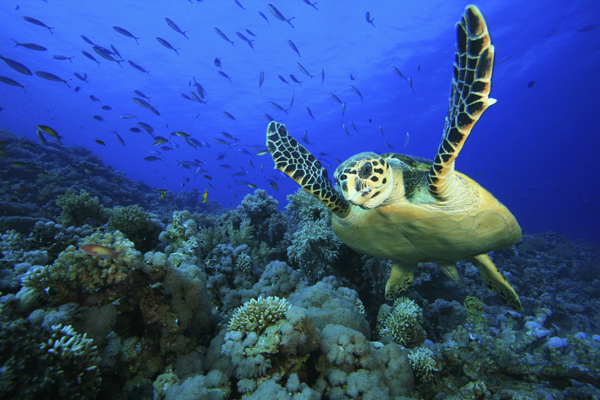The department of earth and biological sciences is celebrating its 50th anniversary April 21–27 with events including field trips, a wild animal vespers, and discussions on both creation and environmental stewardship. Schedule below.
The department’s beginning dates to 1961 when several biologists from the basic science faculty in the School of Medicine proposed a doctoral program in biology for non-medical professionals.
The goals were threefold: to prepare science teachers who were trained with a biblical worldview for Seventh-day Adventist schools and colleges; to develop a better understanding of the relationship between faith and science; and to provide basic science faculty members new avenues of research.
The Board of Trustees approved the new department of biology in December of 1961, and the first students arrived in fall of 1962—three of them.
Since that beginning, enrollment has grown 16-fold to its present high of 50, and the department now also offers degrees in geology, environmental sciences, and natural sciences. Students can shape their degrees to fit their goals and interests.
The department’s name has changed to earth and biological sciences, and its faculty are involved in research including studies on sea turtles, crabs, rattlesnakes, and venoms, and a variety of geology and paleontology topics.
“We’re getting to be better known,” says department chair Leonard Brand, PhD. “Students value our programs because this is a unique place. At many other schools offering these degrees, anyone who asked a question about religion would be laughed out, but at LLU our students can talk about anything and ask any questions.
“This is the only place in the world where a Christian student can get a doctorate in biology or geology and study under faculty who accept the Bible,” he continues.
“We’re a creationist faculty. The students learn our viewpoint as well as secular viewpoints. They need to know what they’re choosing and why.”
In celebration of five decades of the intellectual openness and growth that have characterized the department of earth and biological sciences, the following events are planned and open to members of the LLU Health campus and other guests.
Open house
Sunday, April 21
The 9:30 a.m. to noon open house will cover the department’s past, current programs, and future. It takes place at Griggs Hall. From 11:00 to 12:00, there will be a presentation on the department’s history and goals.
Field trips
Sunday, April 21
Two trips will be offered starting at 1:00 p.m. One trip will study the geology of the Loma Linda area and the San Bernardino mountains, and the other will take participants to study animals at the San Jacinto Wildlife Area, located in Riverside County. It is essential for those wishing to join a field trip to e-mail their request to ebs@llu.edu.
Symposium on environmental stewardship
Friday, April 26, and Saturday, April 27
The symposium will be based on a new book called Entrusted: Christians and Environmental Care. One of the book’s editors is Loma Linda University’s Stephen Dunbar, PhD, associate professor in the earth and biological sciences department. The symposium takes place Friday, 8:00 a.m. to 5:00 p.m., at the Centennial Complex’s Damazo Amphitheater, and Sabbath afternoon, beginning at 2:00 p.m., at Randall Amphitheater.
Individuals who would like to attend the environmental stewardship symposium are invited to e-mail their interest to ebs@llu.edu for planning purposes.
Creation Sabbath school
Saturday, April 27
A special Sabbath school class devoted to creation and why it matters will take place at 10:00 a.m. in the Damazo Amphitheater of the Centennial Complex.
Wild animal vespers
Saturday, April 27
Evening vespers at the Loma Linda University Church will feature live animals and cover the topic “Wild Minds: Animals That Think.” It will be led by William Hayes, PhD, professor in the department of earth and biological sciences, and other colleagues, beginning at 5:00 p.m.

